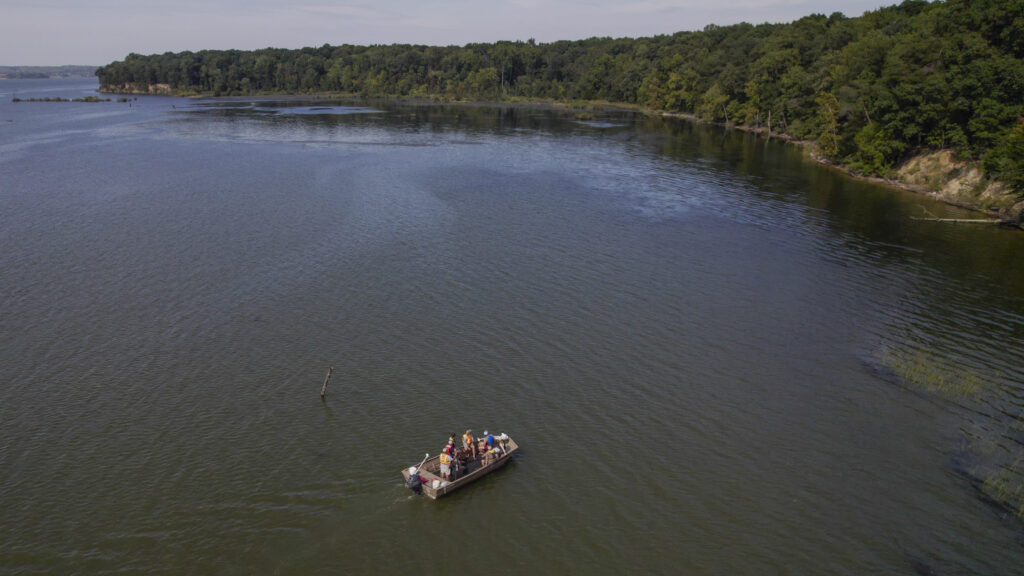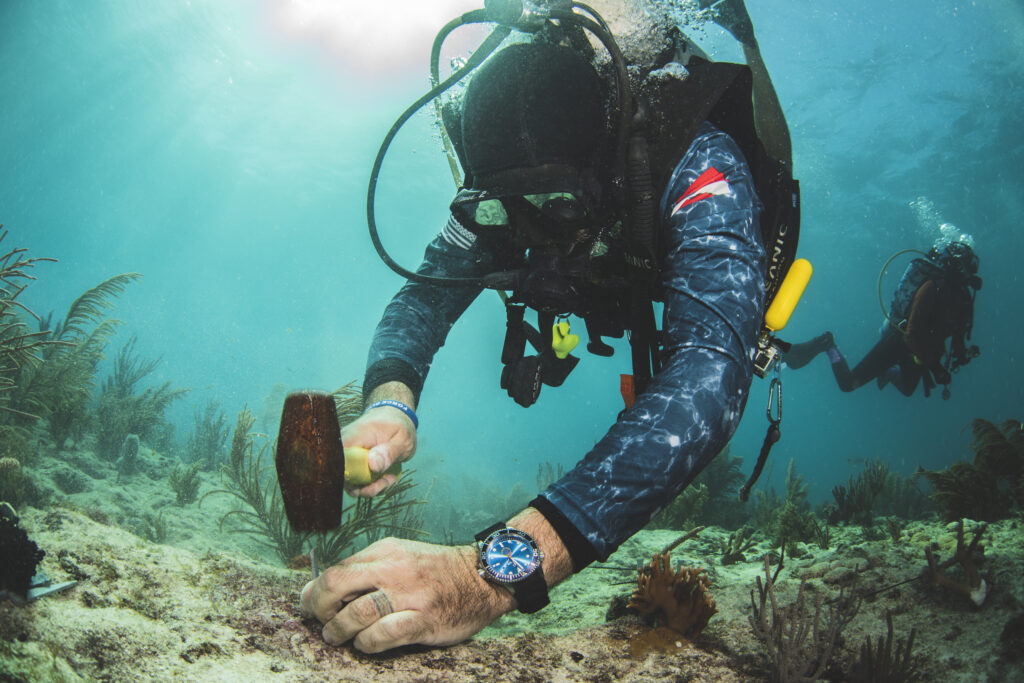After a long day diving in the Cayman Islands in 2015, Jim Ritterhoff, Rudy Reyes, and Keith Sahm sat perched on barstools with a pencil, a napkin, contemplating a mission. By the end of the night, they had sketched the blueprint for what would become one of America’s leading marine conservation and veteran rehabilitation organisations: FORCE BLUE.
All three men brought a unique strength to the table. Ritterhoff was a lifelong scuba diver; Sahm, a respected conservationist; and Reyes, a USMC Recon veteran who had completed several tours in Afghanistan and Iraq. But one thing set Reyes apart—he had never seen a fish or a coral reef, only darkness beneath the waves. That moment of realisation led to FORCE BLUE’s threefold mission: to redeploy and rehabilitate Special Operations veterans, to protect and restore our threatened marine ecosystems, and to bridge the deepening political divides that often stand in the way of effective environmental action and meaningful solutions.
In a time when the alarm of ecological collapse falls on deaf ears, these veterans are repurposing patriotism to unify disparate people in service of marine life.
This interview is part of Icarus Complex Magazine’s ongoing effort to report on climate action and conservation initiatives that are grounded in local needs and seek to transcend partisan narratives. We aim to spotlight the people and projects tackling the climate and biodiversity crises from all corners of society. Researcher Linda Förster sat down with FORCE BLUE co-founder Jim Ritterhoff to talk about hope, finding purpose after war, and how FORCE BLUE is forging a powerful model at the intersection of marine conservation and veteran rehabilitation.

Linda Förster: You’ve mentioned that the goal of FORCE BLUE is twofold: “to address the rapidly declining health of our planet’s marine resources and the difficulty returning combat veterans have in adjusting to civilian life.” How do you integrate these two objectives into one cohesive approach?
Jim Ritterhoff: It was really serendipitous. We started because Rudy Reyes, a good friend of mine and a FORCE BLUE cofounder, was struggling with his transition out of the military. There’s a pattern with many combat veterans: they face issues like alcohol addiction, drug addiction, and divorce, and Rudy was going through all of that. At the time, I was heading to the Cayman Islands to visit a friend’s dive resort, so I invited Rudy to come along, because I could see how much he was hurting. When we dove together, we saw the immediate impact it had on Rudy, and so we started jotting down notes on a bar napkin. The idea was: What if we could provide this service for people like Rudy, to get them reengaged? And what if we could use this to help the ocean, which desperately needs skilled workers? Marine scientists and environmentalists are overworked and underfunded. By bringing in special operations veterans, who are highly skilled underwater operators, we could provide real value to the marine science community while giving veterans a renewed sense of purpose. At the core of it all, veterans just want to continue to serve.
“Marine scientists and environmentalists are overworked and underfunded. By bringing in special operations veterans, who are highly skilled underwater operators, we could provide real value to the marine science community while giving veterans a renewed sense of purpose. At the core of it all, veterans just want to continue to serve.“
LF: You’ve emphasised bridging divides and “fostering transpartisan support for ocean conservation.” Can you walk us through the ties of your work to the political landscape?
JR: Absolutely. In our hyper partisan world, many people refuse to listen when scientists talk about climate change, but they will listen when Navy SEALs, Recon Marines, and Green Berets speak, because they’re speaking from the other side of the aisle. That allows us to reach audiences who might otherwise ignore environmental issues. I joke that if we could apply this model to other issues, if we could get diametrically opposed groups to work together, maybe that’s the solution. That’s Nobel Prize stuff. When you put scientists and special operations veterans on a dive boat, where there’s a shared diving skill set, and where there’s really no option but to work together; you realise how similar they are. They really quickly become like family. We’ve seen incredible bonds form. Scientists who once saw military operations as completely separate from their world now find themselves working side by side with veterans they deeply respect, and veterans who may not have previously thought about conservation now find themselves advocating for ocean health. There was no guarantee that this dynamic would work, but after seven years, it has consistently proven itself.
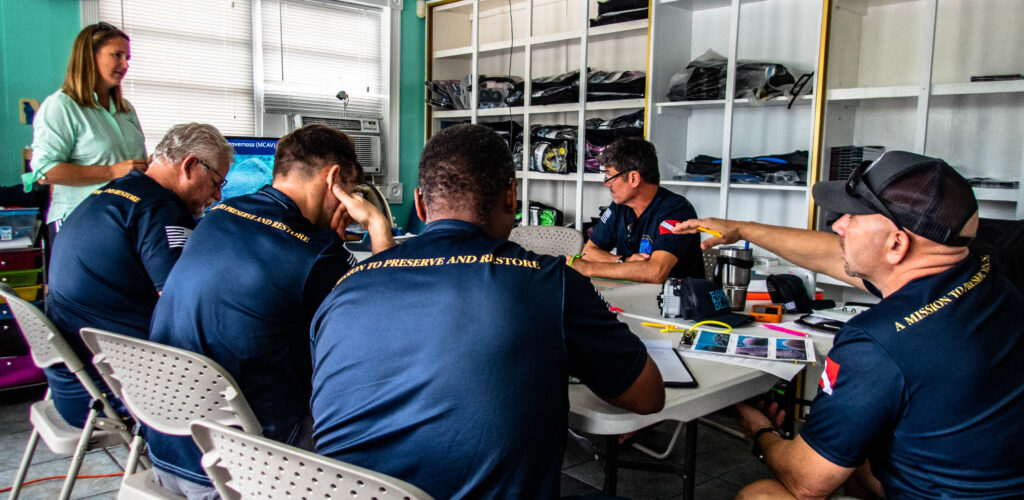
“Scientists who once saw military operations as completely separate from their world now find themselves working side by side with veterans they deeply respect, and veterans who may not have previously thought about conservation now find themselves advocating for ocean health.”
LF: What other specific skills make special operations veterans so well suited for conservation work?
JR: Well, first and foremost, they’re highly motivated people, and they’re self-starters who have risen to the elite ranks of special operations, whether that’s as Navy SEALs, Green Berets, Recon Marines, or Air Force Pararescuemen. Special operations forces make up a very, very small sliver of the military, meaning these individuals have already demonstrated an exceptional level of commitment, resilience, and drive. These people are also super respectful and appreciative of knowledge and have a meticulous level of planning. Every special operations mission begins with a briefing, where you’re trying to understand the situation, anticipate the challenges that might come up, and plan responses. That same mindset carries over when they work with scientists, whether it’s coral restoration, sea turtle conservation, kelp forest preservation, or, like our recent oyster reef planting for the Super Bowl. When you put these groups together, they’re able to get things done more quickly, they view the underwater world as a working environment and they have a deep desire to never fail, to not quit until the job is done.
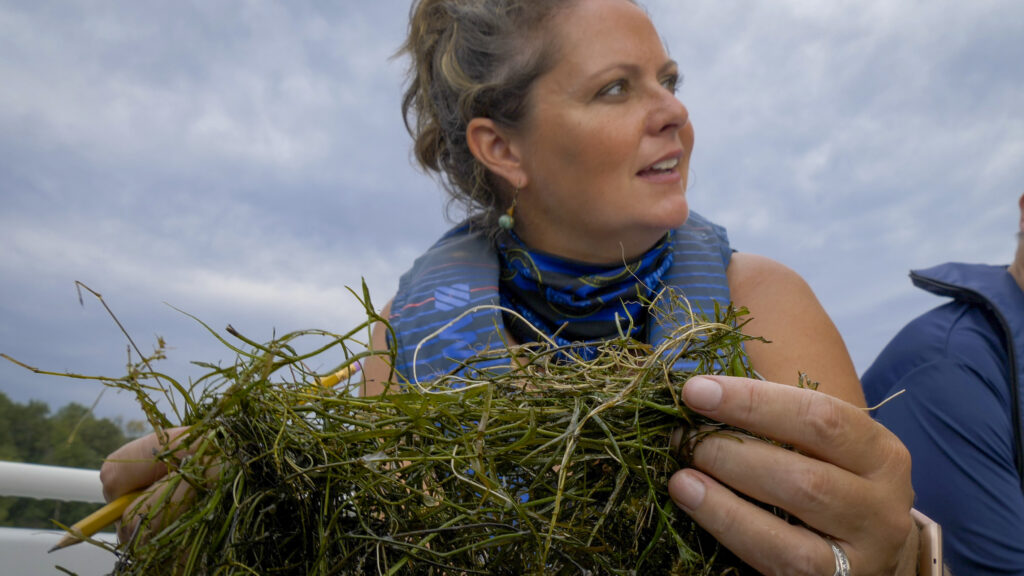
LF: In the film, Mercy, Love & Grace (2017), you call your conservation strategy a “weapon of mass construction.” You also use the term “redeployment.” How has framing conservation in this way reshaped the narrative for veterans?
JR: I think there’s a common perception that we as civilians have of veterans, in that we think the veterans only struggle after leaving the military because of what they experienced. And while that can be true, and I’m not trying to downplay the role of trauma, there’s another side to it, which is that when the service ends, you lose a way to live your life. In the military, you have a mission-driven life that is highly structured and you’re serving your fellow brothers and sisters. You can’t put someone who’s used to that kind of tempo and that level of sacrifice in a cubicle and ask them to get on with their lives. What FORCE BLUE does is provide a new mission – one that’s as big and as selfless as it gets: helping the planet. It gives veterans a renewed sense of purpose, and reunites them with a like-minded team. Every mission we deploy on includes a shared team house, where we eat together, train together, and deploy together, so we can recreate that sense of camaraderie that’s so hard to find in civilian life. And it works. More and more veterans want in.
LF: Studies have shown that scuba diving has significant therapeutic benefits for individuals affected by PTSD and those who have served in combat. Can you expand on how connecting with the water and marine ecosystems helps veterans process their military experiences, especially in relation to what you call “blue mind”?
JR: Oh, there’s so much! Scientifically, nothing can lower your heart rate as much as scuba diving. And I absolutely believe in this idea of “blue mind.” I saw it when we brought Rudy out to dive in the Cayman Islands. You have to remember that he was a marine recon combat diver, who had never been diving during the day and had never seen a fish underwater before. When he finally saw the vibrant life of a coral reef, it was like watching a five-year-old kid at Disneyland. Since then, so many of our veterans have told us that planting a single coral fragment and watching life immediately return to it is profoundly healing. One of our British veterans said, “We came into this as weapons of mass destruction. Maybe this is teaching us how to become weapons of mass construction.” We’re not teaching any of these guys how to dive. We’re teaching them how to find beauty and how to protect it. And when you see the light go on, that’s what we call blue mind.
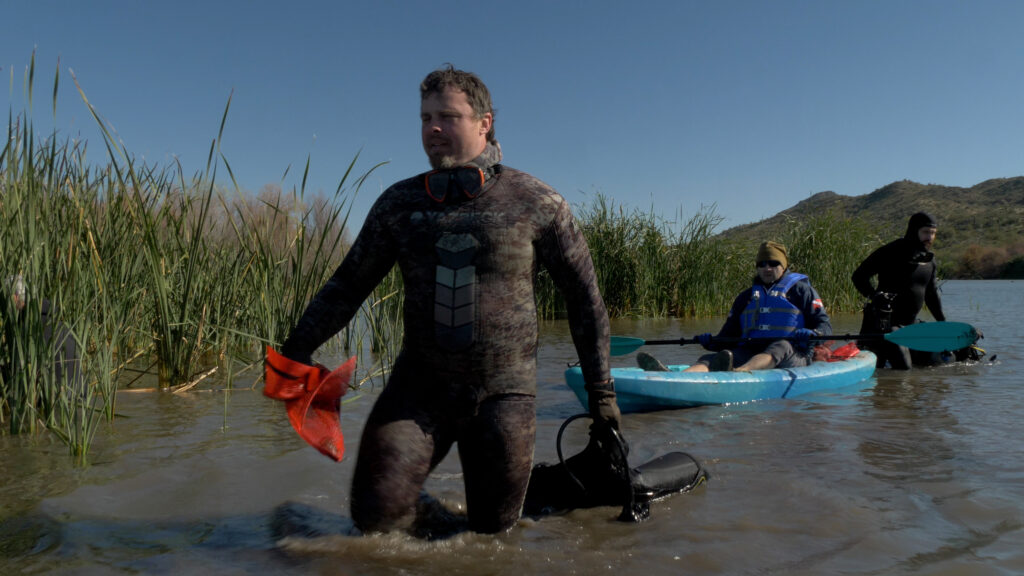
LF: You highlight how the Ocean Conservation School as a way to “educate and inspire the next generation,” and in your documentary, “Swim Through”, you focus on helping children of Gold Star families navigate grief. How does this program cultivate youth leadership in climate and marine preservation?
“When you meet these kids, especially knowing what they’ve been through, it gives you hope. It makes you realise we’re in good hands. The next generation is going to be just fine. Because service isn’t about obligation, it’s about connection –– it’s dynamic, it’s meaningful, and it’s human.”
JR: Around three years ago, a lot of our guys were already becoming instructors, so we decided to launch our FORCE BLUE Ocean Conservation School (OCS). In the military “OCS” stands for Officer Candidate School, so we repurposed it to stay true to our roots. OCS is a four-to-five day long program where kids earn their open-water scuba certification, and where we’re actually training them to be the next generation of marine conservation leaders. We incorporate some military-style elements, too, so we make them do push-ups, exercise, and give them a uniform, which gives the program a sense of structure that reflects what their parents experienced. The kids love it. You shake their hand, and they hug you. That’s when you know it mattered. I mean, when you meet these kids, especially knowing what they’ve been through, it gives you hope. It makes you realise we’re in good hands. The next generation is going to be just fine. Because service isn’t about obligation, it’s about connection – It’s dynamic, it’s meaningful, and it’s human. And for our veterans, it’s unbelievable. Watching them work with these kids, you can see the impact. It’s without a doubt one of our most beloved programs.
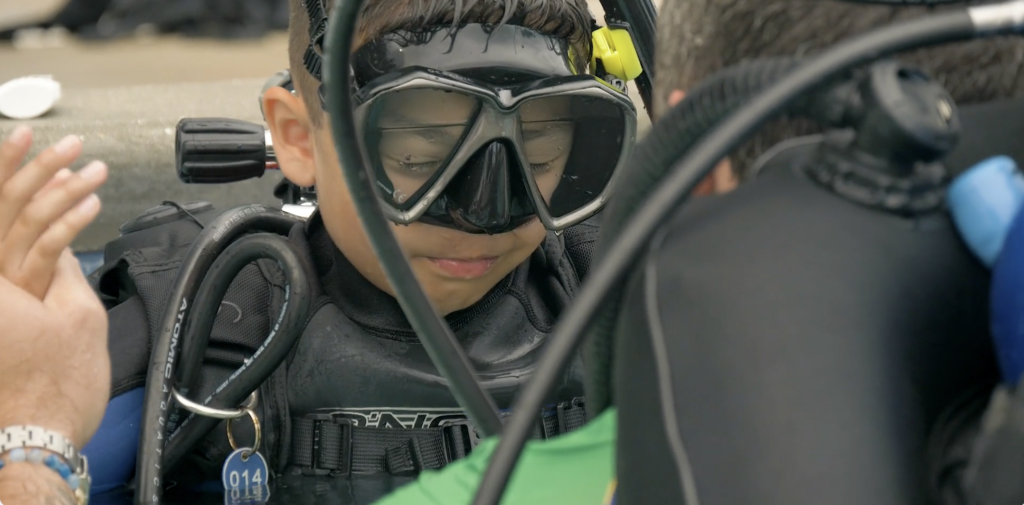
LF: In your documentary Swim Through (2023), you say, “the ocean story we’ve been telling—of guilt, fear, and facts—is broken. We need to make the ocean exciting, fun, and a source of creativity and resilience.” How do you bring that philosophy to life?
JR: That was Jay, who was a dear friend of mine and one of the biggest inspirations in starting FORCE BLUE. I know exactly what he meant with that quote, because I believe it too. What Jay was saying in that quote, and what he always talked about, was the idea that the ocean isn’t just a crisis, it’s our greatest source of inspiration, of art, of love. We need to make people fall in love with the ocean again, because people fight for what they love. That’s the story we need to tell. Yes, there are problems. Yes, in some places, things are dire. But where there are big challenges, there are also amazing opportunities to step up, to make a difference. And we have to believe we can make a difference. Because otherwise, what’s the alternative? At the end of the day, our motto at FORCE BLUE is One Team, One Fight. If you take away one thing from this conversation, let it be that. We hashtag it on all our posts, but more importantly, we actually live by it. Because the division, the siloed thinking, is what’s going to keep us from saving our planet.
“The ocean isn’t just a crisis, it’s our greatest source of inspiration, of art, of love. We need to make people fall in love with the ocean again, because people fight for what they love.”
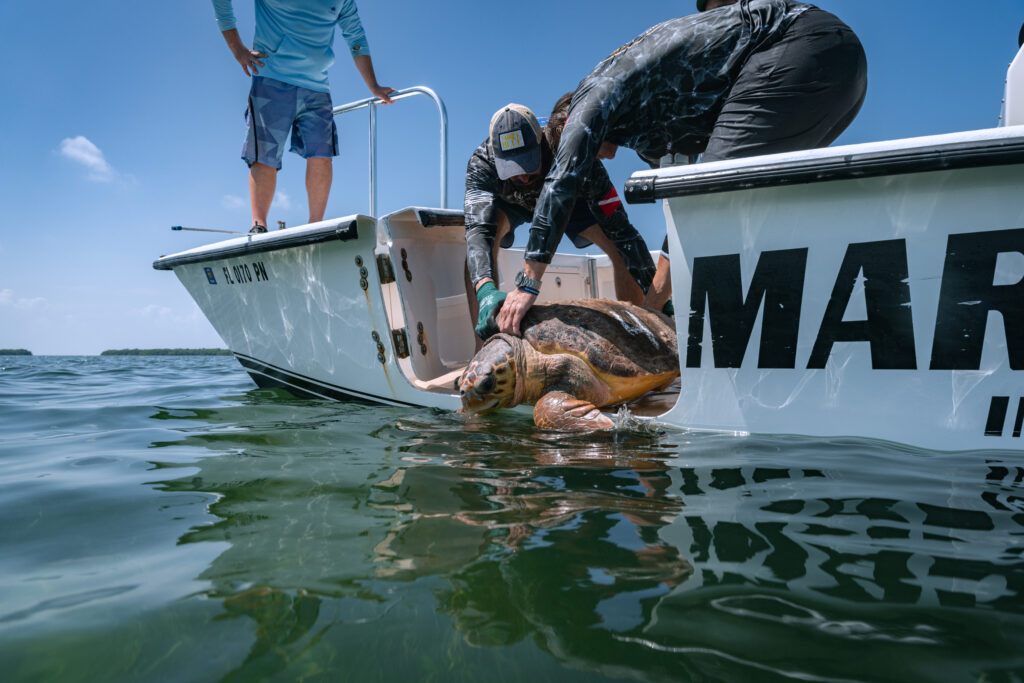
LF: Have you gone through a shift in your thinking before versus now as a result of the work that you do?
JR: Absolutely cataclysmic shifts. I’ve always been kind of a Pollyanna, a bit Don Quixote, you know? I was a writer by trade, working in advertising for years and I even had my own agency. Advertising, at least for me, was a pretty dehumanising, brutal industry. It lacked the kind of spiritual depth that really makes life meaningful. I hit a point where I was completely burned out, maybe even cynical, asking myself, “is this really what I was put here to do? Sell soda? Sell phone service?” Then this opportunity with FORCE BLUE came along, and I just knew, “I’m doing this.” And through it, I’ve learned so much, especially from the veterans we work with. These guys are the highest-caliber human beings you’ll ever meet. I mean, they’re noble, selfless, always wanting to serve. And when you’re around that kind of energy, it’s contagious. You cherish it because it’s rare. Of course, I’ve also been confronted with the reality of the challenges we face. I get to talk directly with scientists, see the data firsthand, and yeah, some of it is scary. But I’ve also seen an incredible amount of commitment, not just from the veterans, but from the scientists, the kids we train, and so many others stepping up to make a difference. For me personally, I’m living the dream. I get to do what I love every day. How many people can say that? And beyond just my own fulfillment, I feel hopeful for my kids, for future generations. It’s probably added years to my life, honestly, because positivity does that. And I wish more people understood that. When you actually start fighting for something bigger than yourself, you realise that this isn’t just work. Take the military out of it for a second. Serving the planet, supporting organisations that are trying to make a difference is not a burden. It’s a calling. It’s spiritual, intellectual, emotional. It’s all the things that make life meaningful.
LF: What is FORCE BLUE’s long-term vision for combating environmental challenges? Are there any upcoming projects or initiatives our readers should keep an eye on?
We’ve got a lot going on. A couple of years ago, we launched a really ambitious project called “Tour of Duty”. The goal is to visit every single National Marine Sanctuary in the U.S., perform a mission there, and engage the public around it. These sanctuaries are everywhere. They’re basically national parks, but underwater, so most people don’t even know they exist. It’s been amazing so far. We’ve completed two of these missions, and our third one is coming up this year. We’re also heading to Okinawa in July, so this really feels like the year we go global.
